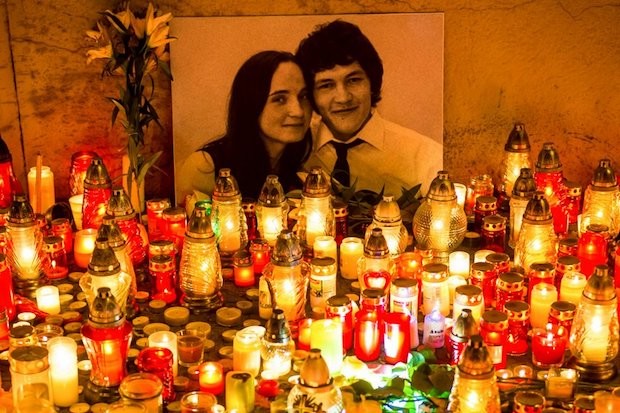Almost a year after the murder of investigative reporter Jan Kuciak and his fiancee Martina Kušnírova, a group of Slovakian journalists came together to continue his work on investigating international organised crime.
The non-profit organisation Investigative Centre of Jan Kuciak is the first of its kind in Slovakia. Its objective is to facilitate information-sharing within its international journalism network and uncover links between organised crime and politics.
Today a year ago the murder of our colleague #JanKuciak led to some of the biggest political changes in #Slovakia since the Velvet Revolution. Out of this tragedy we formed a journalistic community & continue Jan's work ever since and we will not stop! #AllforJan #Pressfreedom pic.twitter.com/MzCbMxcbr6
— Ringier AG (@ringier_ag) February 21, 2019
The centre collaborates with the Organized Crime and Corruption Reporting Project (OCCRP) which gives them access to more than 30 investigative journalism hubs across four continents.
"There is no other way to investigate organised crime than by collaborating on a global scale,” said ICJK founder Arpád Soltész.
To kickstart the project, ICJK received $25,000 from OCCRP, as well as a number of smaller grants. To sustain its work, the centre will be financed solely through grants and private donations. The founding journalists even agreed on a blacklist of organisations they will not accept money from.
“We won't take accept donations from any political party or organisations, even non-profit ones, that get any financial support from political parties. We also stay away from large corporations like banks or insurance companies to avoid any conflict of interests,” said Soltész.
The Slovakian media community and audiences welcomed the creation of the centre. Despite entering a small and very competitive media market, ICJK strives not to compete against any publication but rather promote and facilitate collaboration.
"We are not trying to publish breaking news on our portal as we will never have the same reach as big nationals," he said.
"All journalists are welcome to come and collaborate with us. If there's anything we can do to help with international investigation, we will be happy to do it."
One of the cases the journalists are currently working on is a money-laundering scheme known as Troika Laundromat that has been transferring money between Russia and Western countries.
Soltész also explained that readers often feel like investigative journalists are doing better work than the police. However, the audience often does not appreciate the fact that international criminal investigation is tightly regulated, meaning requesting and obtaining an information from a foreign country takes months.
"Journalists are not subject to any such regulations. When we see a foreign individual who could be involved in a crime we investigate, we share a request with the investigative network and we can obtain data in a matter of days."
This is one of the reasons why journalists are often much more efficient in uncovering organised crime than police. But it comes with its risks.
Is ICJK afraid of continuing work of a murdered journalist?
"Only psychopaths are not afraid," said Soltész. "What is important is to not get influenced by fear."
He knows what he is talking about. In 1998, during a period of political turmoil in the country, Soltész was a victim of physical assault by Slovakian intelligence agency which made him learn to live and work with fear.
"However, even my younger colleagues manage their fear very well and it is not reflected in their work. The opposite is true -- since the murder of Jan and Martina, they are much more feisty and ruthless in their investigative work."
Free daily newsletter
If you like our news and feature articles, you can sign up to receive our free daily (Mon-Fri) email newsletter (mobile friendly).
Related articles
- 40 essential newsletters every journalist should read
- 15 free sources of data on the media industry
- New European journalism database facilitates cross-border collaboration
- How AI can help journalists track MPs financial interests
- New investigative project helps resource-poor newsrooms report on health










